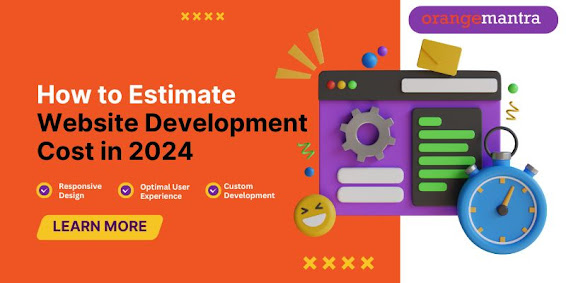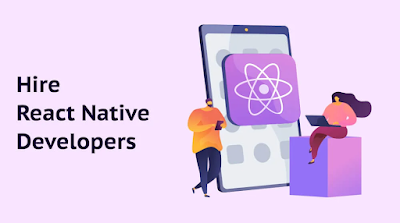Hiring a Shopify developer through the staff augmentation model can be a game-changer for businesses looking to scale their e-commerce operations efficiently. Staff augmentation allows companies to extend their teams with skilled professionals on a temporary or project-based basis, providing flexibility and access to top-tier talent without the long-term commitment of full-time hires. Here are some comprehensive tips to help you successfully hire Shopify developer through the staff augmentation model.
Understanding the Staff Augmentation Model
Before diving into the hiring process, it’s essential to understand what staff augmentation entails. Staff augmentation is a strategy where businesses hire external professionals to supplement their in-house teams. This model provides several benefits:
- Flexibility: Hire developers for specific projects or time frames, adjusting the team size as needed.
- Cost-Effectiveness: Save on recruitment, training, and overhead costs associated with full-time employees.
- Access to Expertise: Tap into a global talent pool to find specialists with the exact skills required for your Shopify projects.
- Speed: Quickly scale your team to meet project deadlines without the lengthy process of traditional hiring.
Identifying Your Needs
Before starting the search for a Shopify developer, clearly define your project requirements and goals. Consider the following aspects:
- Project Scope: Outline the specific tasks or projects the developer will work on. This could include setting up a new Shopify store, customizing themes, integrating third-party apps, or optimizing site performance.
- Skill Requirements: Identify the technical skills and experience needed. This may include proficiency in Shopify Liquid, HTML, CSS, JavaScript, and experience with Shopify APIs.
- Budget: Determine your budget for the staff augmentation. This includes the developer’s hourly or project-based rate and any additional costs, such as tools or software licenses.
- Duration: Estimate the timeline for the project. Knowing whether you need a developer for a few weeks, months, or an ongoing basis will help you find the right fit.
Choosing the Right Staff Augmentation Partner
To find top Shopify developers, partner with a reputable staff augmentation firm. Here are some tips for selecting the right partner:
- Reputation and Experience: Look for a firm with a solid track record and positive reviews from other clients. Experience in the e-commerce and Shopify space is a significant plus.
- Talent Pool: Ensure the firm has access to a large pool of qualified Shopify developers. This increases the chances of finding a developer who matches your specific needs.
- Screening Process: Inquire about the firm’s vetting process for developers. A rigorous screening process ensures you get skilled and reliable professionals.
- Support and Communication: Choose a firm that provides ongoing support and facilitates effective communication between you and the developers.
- Flexibility: The firm should offer flexible engagement models, allowing you to scale up or down based on your project needs.
Screening and Interviewing Candidates
Once you’ve partnered with a staff augmentation firm, the next step is to screen and interview potential Shopify developers. Here are some tips for this process:
- Resume Review: Look for candidates with relevant Shopify experience and a strong portfolio. Pay attention to their previous projects and the technologies they’ve used.
- Technical Skills Assessment: Conduct technical assessments to evaluate the candidate’s proficiency in Shopify development. This can include coding tests, practical assignments, or live coding sessions.
- Interview: During the interview, assess the candidate’s problem-solving skills, communication abilities, and cultural fit. Ask about their experience with Shopify-specific challenges and how they’ve addressed them.
- Portfolio Review: Review the candidate’s portfolio to see examples of their previous work. This gives you an idea of their design sensibilities and the quality of their code.
- References: Check references to get insights into the candidate’s work ethic, reliability, and ability to meet deadlines.
Ensuring a Smooth Onboarding Process
A well-planned onboarding process is crucial for integrating the Shopify developer into your team and ensuring they can hit the ground running. Here’s how to facilitate smooth onboarding:
- Clear Documentation: Provide comprehensive documentation of your existing Shopify setup, including code repositories, design guidelines, and any third-party integrations.
- Access and Tools: Ensure the developer has access to all necessary tools, platforms, and resources. This includes access to your Shopify admin panel, version control systems, and communication tools.
- Introduction to the Team: Introduce the developer to your in-house team and clarify roles and responsibilities. This fosters collaboration and helps the developer understand the team dynamics.
- Project Briefing: Provide a detailed briefing on the project, including goals, timelines, and any specific requirements or constraints. Clear communication from the start sets the stage for successful project execution.
- Regular Check-Ins: Schedule regular check-ins to monitor progress, address any issues, and provide feedback. This ensures the developer stays on track and aligned with your project objectives.
Best Practices for Collaboration
Effective collaboration is key to making the staff augmentation model work. Here are some best practices to ensure seamless collaboration with your augmented Shopify developer:
- Communication: Maintain open and transparent communication channels. Use tools like Slack, Trello, or Asana to facilitate real-time communication and project management.
- Set Clear Expectations: Clearly define expectations regarding project deliverables, deadlines, and quality standards. This helps prevent misunderstandings and ensures everyone is on the same page.
- Feedback Loop: Establish a feedback loop where the developer can share updates and receive constructive feedback. Regular feedback helps improve the quality of work and keeps the project on track.
- Foster Team Spirit: Treat the augmented developer as part of your team. Encourage collaboration and create opportunities for team bonding, even if the developer is remote.
- Monitor Progress: Use project management tools to track progress and ensure the project is moving forward as planned. Regular status updates and performance reviews can help identify and address any issues early on.
Addressing Challenges
While staff augmentation offers many benefits, it’s not without its challenges. Here are some common challenges and how to address them:
- Cultural Fit: Ensuring the augmented developer fits well with your company culture can be challenging. To mitigate this, involve your in-house team in the interview process and emphasize your company values during onboarding.
- Communication Barriers: Language and time zone differences can create communication barriers. Use collaboration tools and establish overlapping work hours to facilitate better communication.
- Quality Control: Maintaining consistent quality can be challenging with remote developers. Implement code reviews, automated testing, and regular performance evaluations to ensure high standards are met.
- Dependency: Avoid becoming overly dependent on augmented staff by cross-training your in-house team and documenting processes thoroughly.
Measuring Success
To evaluate the success of your staff augmentation strategy, track key performance indicators (KPIs) related to project outcomes and developer performance. Some metrics to consider include:
- Project Completion Rate: Measure how many projects are completed on time and within budget.
- Quality of Work: Assess the quality of code, design, and overall deliverables. This can be measured through code reviews and user feedback.
- Team Satisfaction: Gauge the satisfaction of your in-house team with the augmented developer’s work and collaboration.
- Developer Performance: Monitor the performance of the augmented developer, including their ability to meet deadlines, solve problems, and contribute to the team.
Conclusion
Hiring a Shopify developer through the staff augmentation model can provide your business with the flexibility and expertise needed to scale your e-commerce operations effectively. By clearly defining your needs, partnering with a reputable staff augmentation firm, and following best practices for screening, onboarding, and collaboration, you can ensure a successful and productive engagement.
Remember, the key to making staff augmentation work lies in open communication, clear expectations, and continuous monitoring and feedback. With the right approach, you can leverage the skills of augmented Shopify developers to drive your e-commerce success and stay ahead in the competitive online marketplace.




